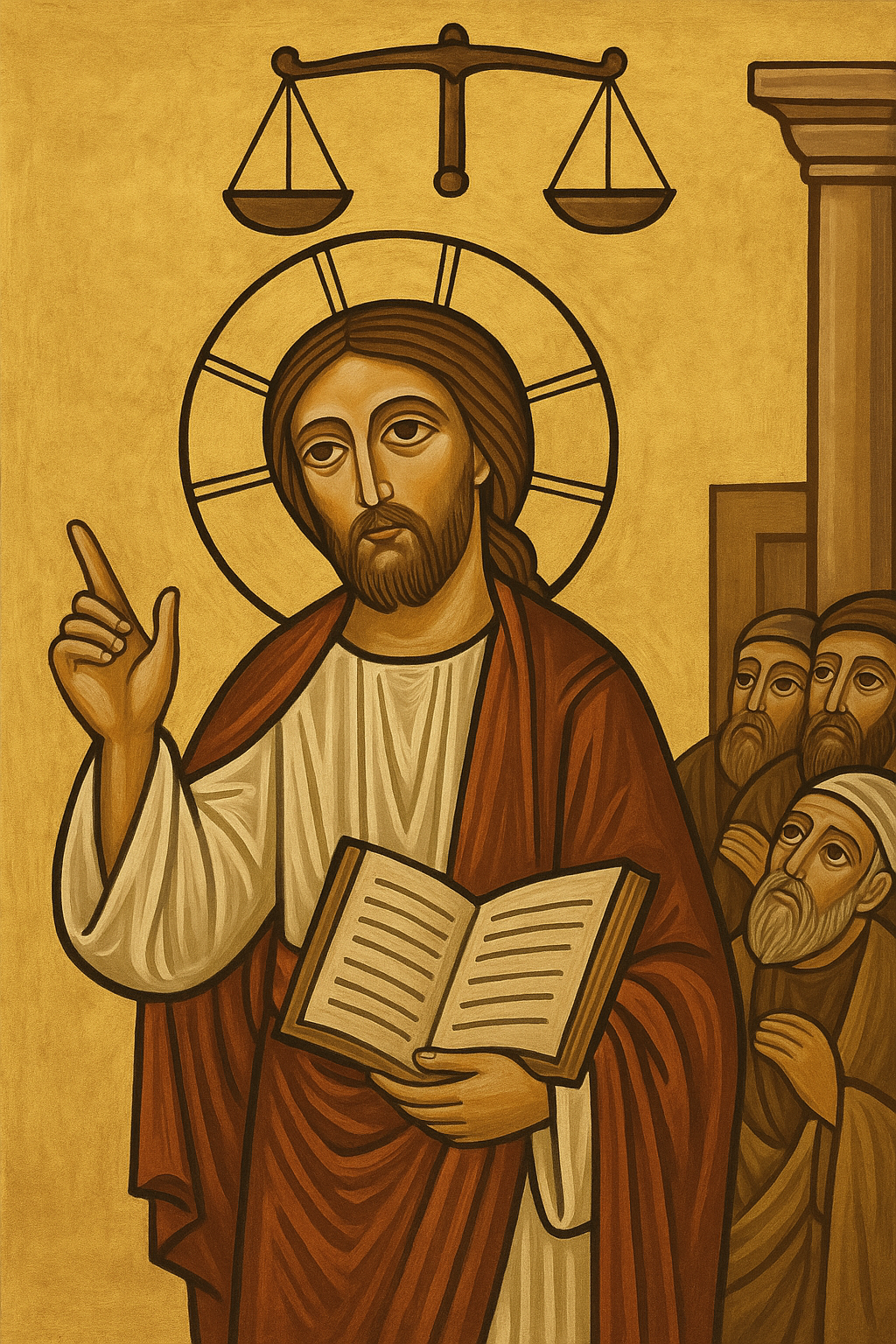“Do Not Judge by Appearance” – John 7:24
In the Name of the Father, and the Son, and the Holy Spirit, One God. Amen.
May the grace of the Father who calls us, the Only Begotten Son who saves us, and the Holy Spirit who sanctifies us be with you all, that we may hear His word and bear fruit—thirty, sixty, and a hundredfold. Amen.
Introduction:
Our Lord Jesus Christ says,
“Do not judge according to appearance, but judge with righteous judgment.” (John 7:24, NKJV)
With this one sentence, Christ exposes the hypocrisy that hides beneath the cloak of religious zeal. In a world enslaved by appearances, the Lord invites us to discern beyond the surface, to judge according to divine justice, not mere human impressions.
1. The Law: From Symbol to Fulfillment
Jesus speaks to the Jews who accused Him of breaking the Sabbath by healing. He confronts them, asking: if Moses is not condemned for performing circumcision on the Sabbath, then why do they condemn the Son, who is always in perfect unity with the will of the Father?
St. Cyril of Alexandria explains: the Law was not the end but a shadow of what was to come (cf. Hebrews 10:1). The circumcision on the eighth day, the rest on the seventh—these were signs pointing to a greater spiritual truth fulfilled in Christ. The Sabbath was not merely about physical rest, but about eternal rest for the soul.
2. Sabbath: A Symbol of Eternal Rest
The Sabbath, as St. Cyril teaches, symbolizes the rest of the saints in the Kingdom of God. He writes:
“The Sabbath rest points to a life without toil, where the saints rejoice in the goodness of God.”
This rest is not inactivity but a spiritual joy—the cessation of sin and striving. It is the joy of the soul that has laid down the burden of guilt and now delights in the presence of the Lord.
When Christ heals on the Sabbath, He reveals its true meaning: healing, restoration, and entering the rest that only God can give.
3. Appearance vs. Truth
Christ rebukes superficial judgment.
“Why do you look at the speck in your brother’s eye, but do not consider the plank in your own eye?” (Matthew 7:3)
He reminds us that when we judge others rashly, we often expose our own blindness.
St. Augustine said,
“When you judge another, you are condemning yourself—for you show what spirit is in you.”
Judging by appearances is often a mask for pride, resentment, or self-righteousness. But God sees the heart (1 Samuel 16:7), and only He can judge rightly.
4. The Son Fulfills, Not Breaks, the Law
Jesus did not come to abolish the Law but to fulfill it (Matthew 5:17). He restored its essence: mercy, justice, and truth. While the Law prohibited work on the Sabbath, Christ revealed that love is the highest law.
St. John Chrysostom said:
“The Law sought physical rest; Christ offers rest to the soul.”
To heal on the Sabbath is not a violation—it is the very fulfillment of the Sabbath.
5. A Call to Examine the Heart
Beloved, before judging others, we must ask:
Am I seeing as God sees?
Do I seek truth or justification for my anger?
Do I extend mercy or cling to accusation?
Righteous judgment begins with humility, and humility begins with self-examination.
Practical Application:
Pause before you speak.
When someone offends you or disappoints you, don’t rush to judge. Ask yourself:
“Am I judging by appearance, or am I seeking God’s perspective?”
Let mercy and truth meet in your heart.
Conclusion:
Let us not be like those who condemned Christ while claiming to defend Moses. Let us not hold others to standards we ourselves break.
Instead, let us walk as children of the truth, who “judge with righteous judgment”—with discernment, compassion, and the fear of God.
Amen.
May the Lord bless us, transform our hearts and minds, that our homes may stand on the Rock, our hands serve in the harvest, and our hearts long for Heaven. Amen.

